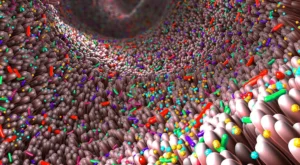Emmy Koeleman
May 23, 2018
ARTICLE SOURCE: https://www.allaboutfeed.net/animal-feed/feed-additives/probiotics-reduces-antibiotic-need-in-bees/
Probiotics can decrease the mortality rate due to infection in bees by up to 40%. This is according to new research, published in the Journal Frontiers in Ecology and Evolution.
Adding probiotics to bees’ food helps make them more resistant to nosemosis, a fungal infection associated with colony collapse disorder that has been observed in Europe and North America over the past 20 years. Currently, nosemosis is treated with antibiotics, but their efficacy is declining as resistant strains of the fungus have emerged. “In addition, these products can kill beneficial bacteria in the intestinal microbiota of bees,” says Nicolas Derome, professor at the Faculty of Science and Engineering at Université Laval in Canada and lead author in the study. “We had to find other solutions to combat this disease, and that’s what gave us the idea to test probiotics.”
The researcher and his team intend to take advantage of the protective properties of the probiotics present in bees’ microbiota to develop new ways of combating nosemosis. “The tests we‘ve conducted in bee colonies suggest that a particular probiotic, called P. apium, is our best candidate. We have also identified other promising microbial strains and now hope to develop a combination of probiotics to combat nosemosis in bees. However, the real solution to this disease is to identify and correct the sources of stress disrupting the bees,” concludes the researcher.
Earlier research, as reported by All About Feed, also showed the benefits of probiotics for bees. According to the researchers, Lactobacilli bacteria can potentially protect honey bees from the toxic effects of pesticides. In the study, fruit flies as a well-known model for studying pesticide toxicity in honey bees were used. By administering a specific strain of probiotic Lactobacilli, survival among fruit flies exposed to the pesticide improved significantly. The mechanism involved stimulating the immune system through a pathway that insects use to adapt to infection, heat and other stresses.




